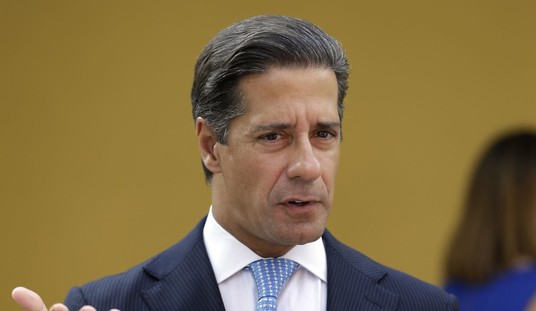Why is John Cleese pictured in a story about a poem at the Nation? You’ll have to read to the end to find out. Last week I wrote about the controversy that broke out over a poem published by the far left magazine The Nation. The poem was only a little over 100 words long but after a backlash on Twitter, the magazine published an apology that was more than twice as long. Here’s a sample:
We made a serious mistake by choosing to publish the poem “How-To.” We are sorry for the pain we have caused to the many communities affected by this poem…In the end, this decision means that we need to step back and look at not only our editing process, but at ourselves as editors.
Good grief! Even Katha Pollitt, who writes for the Nation, thought this sounded like a letter from “re-education camp.”
That is the magazine's usual practice with controversies. What they wrote looks like a letter from re-education camp. (For what it's worth I did not read the poem the way its critics did.) 2/2
— (((Katha Pollitt))) (@KathaPollitt) July 31, 2018
Today, Grace Schulman, who was the poetry editor for the Nation for 35 years, has a piece in the NY Times saying the magazine made a mistake when it apologized for the poem:
During the 35 years that I edited poetry for The Nation magazine, we published the likes of W.S. Merwin, Pablo Neruda, May Swenson, Denise Levertov, James Merrill and Derek Walcott. They wrote on subjects as varied as lesbian passion and nuclear threats. Some poems, and some critical views, enraged our readers and drove them to drop their subscriptions.
But never did we apologize for a poem we published. We saw it as part of our job to provoke our readers — a mission we took especially seriously in serving the magazine’s absolute devotion to a free press…
In my years at The Nation, I was inspired by the practical workings of a free press. We lived by John Milton’s assertion that “error of opinion may be tolerated where reason is free to combat it.”
But Schulman says the problem goes beyond this one poem. The real problem, she says, is the idea that artists can’t become characters who are not themselves:
The broader issue here, though, is the backward and increasingly prevalent idea that the artist is somehow morally responsible for his character’s behavior or voice. Writers have always presented characters with unwholesome views; F. Scott Fitzgerald, Charles Dickens and Shakespeare come immediately to mind.
It seems to me Schulman has hit upon the exact problem I highlighted when I wrote about this story last week:
On the left, no one is allowed to escape their identity. Not in a film. Not on TV. Not on Twitter. Not in a poem. Forget putting yourself in someone else’s shoes, even sympathetically. That’s considered theft, not empathy or imagination. This is the outlook that Bari Weiss (correctly, I think) called the opposite of the American ethos and it’s now the default view on the far left. But again, I don’t think people, even on the left, really want to believe this so much as they fear the mob that enforces it with the threat of total personal destruction unless you go along.
I stand by that and I’d be interested to hear more people on the left say something about it as well. It seems to me that the left’s focus on racial identity and cultural appropriation have created a network of fences on the cultural landscape which most people fear to cross. The result is especially bad for those individuals—artists and comedians—whose work naturally crosses those artificial borders.
As John Cleese said last year, all of this is motivated by a modern impulse prevalent on college campuses which says people should be protected from feelings of discomfort. Cleese points out in the clip below that a psychologist once told him, “If people can’t control their own emotions, then they have to start trying to control other people’s behavior.” That’s exactly what safe spaces are all about and it’s why The Nation is now issuing groveling apologies for poetry.








Join the conversation as a VIP Member